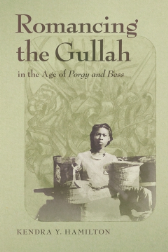Dr. Jacob of Oxford College Presents Seminar for Biology Department
November 18, 2010
Dr. Nitya Jacob, a molecular biologist from Oxford College of Emory University, came to present a biology seminar on November 18, 2010, in Whitelaw. Dr. Jacob was a graduate student at Ohio State University with Dr. Gordon. Their research interests overlap, and he told her about the series of seminars presented by the senior biology students. Because there are many students uninterested in biology, this reporter tried to simplify the seminar as much as possible.
Her presentation, titled Exploring life on Rock Outcrops: Microbe and Plant Communities, explores the microbial life on plants growing. Microbes are worth studying for a variety of reasons: they are ubiquitous, their interaction with other organisms and influence on their ecosystem deserve examination, research can benefit humans (especially in the field of biotechnology), and research can clarify evolutionary ties. The research project involved Dr. Jacob’s students and was originally envisioned as a research topic for her class. From there it expanded further.
The basic question asked by the researchers was what types of microbe communities live on the outcrops of rocks in Georgia. Specifically, they looked at the rhizosphere, a narrow region of soil that is directly influenced by root secretions and the soil microorganisms. A few of the microorganisms that could be present include bacteria, archaea, fungi, protozoa, algae, and some small invertebrates. Harvesting and cataloging these microorganisms was the focus of the research. Dr. Nitya Jacob and her students examined the rhizosphere of three plants: Sedum smallii, Helianthus porteri, and Senecio tomentosus. Ktedonobacteria was largely present in the rhizosphere, more so in Sedum. Acidobacteria had a strong presence in Senecio. The researchers also found that the ratios of present bacteria differed depending on the time of the year.
The research was interesting, and this reporter hopes that Presbyterian College will invite more professors to present a seminar on their research. Hopefully, the presentation will facilitate interest in PC’s biology department and potential biochemistry department.




